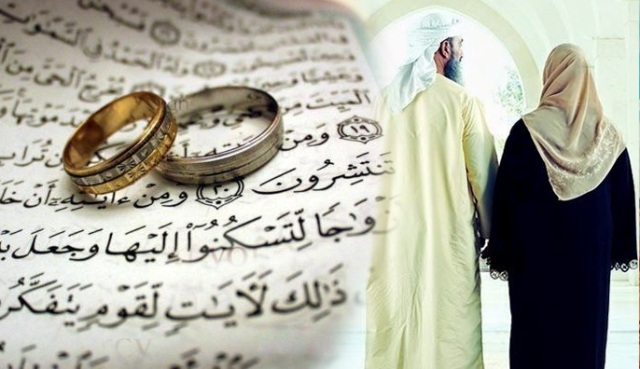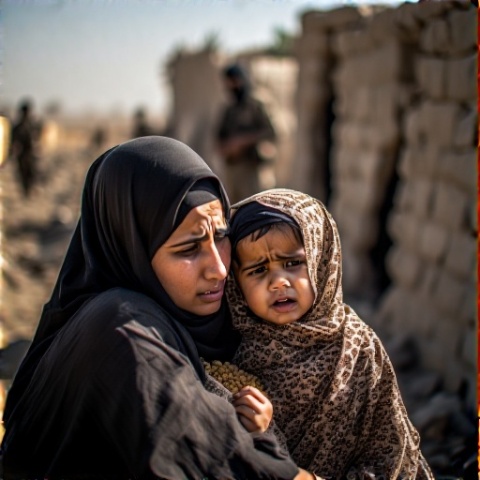Marriage in Islam is far more than a social contract or a festive occasion. It is a sacred journey-a spiritual partnership designed to foster tranquility, love, and growth for both spouses. While weddings often capture the spotlight, the true beauty and challenge of marriage unfold in the daily acts of kindness, mutual support, and shared worship that follow. In an age of fleeting relationships and shifting values, Islamic teachings on marriage offer timeless guidance for building a meaningful, resilient, and spiritually fulfilling union.
The Spiritual Essence of Marriage in Islam
Marriage is regarded in Islam as an act of worship and a means of drawing closer to Allah (SWT). It is a relationship rooted in mercy, affection, and mutual support, as beautifully described in the Quran:
“And among His signs is this: He created for you mates from yourselves, that you may find tranquility in them, and He placed between you affection and mercy. Indeed in that are signs for people who reflect.”
(Quran 30:21)
This verse highlights that marriage is meant to bring peace and comfort to the soul, and that love and mercy are divinely placed between spouses. The Prophet Muhammad (PBUH) further emphasized this, saying:
“The best of you are those who are best to their wives.”
(Tirmidhi)
Marriage, therefore, is not merely a means of fulfilling physical needs or social expectations-it is a path to spiritual elevation and personal growth.
The Foundation: Marriage as a Spiritual and Social Contract
The Sacred Bond of Nikah
Nikah (marriage) in Islam is not just a legal agreement but a sacred covenant witnessed by Allah (SWT). The Quran refers to the marriage contract as a “fortress” (ihsan), protecting individuals and society from moral decay. The Prophet Muhammad (PBUH) described marriage as half of faith, highlighting its centrality in a believer’s life.
He (PBUH) said: “When a servant marries, he has completed half of his religion; let him then fear Allah regarding the remaining half.” (Al-Bayhaqi)
This underscores that marriage is a means of spiritual fulfillment and a shield against temptation.
Mutual Rights and Responsibilities
Islamic marriage is built on mutual rights and obligations. Both husband and wife are “garments” for each other-providing comfort, protection, and intimacy:
“They (your wives) are as a garment to you, and you are as a garment to them.”
(Quran 2:187)
This metaphor captures the closeness, support, and dignity that should define the marital relationship.
Shared Spiritual Goals
Marriage in Islam is a partnership in faith. Spouses are encouraged to help each other grow closer to Allah (SWT), support one another in worship, and raise righteous children. The Quran commands:
“O you who believe! Save yourselves and your families from a Fire…”
(Quran 66:6)
This verse highlights the shared responsibility to nurture a household rooted in piety and obedience to Allah (SWT).
Building a Spiritual Partnership: Beyond the Wedding Day
Love, Mercy, and Kindness
The Prophet Muhammad (PBUH) was a model of kindness and affection in marriage. He (PBUH) said:
“The believers, in their love, mercy, and kindness toward each other, are like one body; when any part of it is in pain, the rest of the body feels it and shares in the pain.”
(Sahih Muslim)
Islamic teachings emphasize that love and compassion are not only encouraged but necessary for a healthy marriage. Spouses should strive to develop empathy, patience, and understanding, even during times of difficulty.
Communication and Mutual Respect
Effective communication is vital for resolving conflicts and deepening intimacy. The Quran and Sunnah encourage spouses to consult each other, listen with respect, and avoid harsh words. The Prophet (PBUH) often engaged in open, gentle conversation with his wives and valued their opinions.
Fulfilling Each Other’s Needs
Islam recognizes the importance of emotional, physical, and spiritual fulfillment within marriage. Both spouses are encouraged to be attentive to each other’s needs, including intimacy, companionship, and support. The Prophet (PBUH) said:
“When one of you has intercourse with his wife, it is a charity.”
(Sahih Muslim)
This hadith highlights the spiritual value of fulfilling marital rights with kindness and consideration.
Honesty, Trust, and Faithfulness
Trust is the bedrock of a spiritual partnership. The Quran and Sunnah stress the importance of honesty, keeping promises, and maintaining fidelity. The Prophet (PBUH) said:
“The most complete of the believers in faith are those with the best character, and the best of you are the best to their women.” (Tirmidhi)
Both partners are expected to protect each other’s honor and dignity, fostering an environment of safety and trust.
Addressing Challenges: Conflict, Forgiveness, and Growth
Navigating Disagreements
Disagreements are natural in any relationship. Islam encourages spouses to resolve conflicts with wisdom, patience, and forgiveness. The Quran teaches:
“…and those who restrain anger and pardon people; and Allah loves the doers of good.”
(Quran 3:134)
The Prophet (PBUH) advised couples to overlook faults and focus on each other’s positive qualities, saying:
“A believing man should not hate a believing woman; if he dislikes one of her characteristics, he will be pleased with another.” (Sahih Muslim)
Seeking Help and Mediation
When conflicts persist, Islam encourages seeking wise counsel or mediation from trusted family members or community leaders. The Quran outlines:
“…appoint an arbiter from his people and an arbiter from her people…”
(Quran 4:35)
This approach aims to resolve disputes fairly and maintain the integrity of the marriage.
Personal Growth Through Marriage
Marriage is a means of cultivating virtues such as patience, humility, and selflessness. Facing challenges together provides opportunities for both spouses to grow spiritually and emotionally, drawing closer to Allah (SWT) and each other.
Rights and Responsibilities: A Balanced Approach
Shared Obligations
Both spouses share core responsibilities, including advising each other toward righteousness, maintaining honesty, and building a harmonious home. The Prophet (PBUH) said:
“All of you are shepherds and each of you is responsible for his flock…”
(Sahih Bukhari 893, Sahih Muslim 1829)
Husbands are tasked with providing for and protecting the family, while wives are entrusted with managing the household and nurturing children. However, these roles are not rigid; Islam encourages flexibility and cooperation based on mutual agreement and changing circumstances.
Rights of the Husband and Wife
Each spouse has specific rights, such as financial support, respect, privacy, and fulfillment of marital needs. The Prophet (PBUH) emphasized fairness and kindness in fulfilling these rights, warning against neglect or abuse.
The Importance of Consent and Contract
Marriage in Islam is founded on mutual consent and a clear contract (nikah), which may include specific conditions agreed upon by both parties. Honoring these agreements is a matter of integrity and faithfulness.
Contemporary Relevance: Applying Islamic Teachings Today
Navigating Modern Challenges
Modern life presents unique challenges for Muslim couples-balancing careers, raising children in a fast-paced world, and maintaining faith amidst distractions. Islamic teachings remain deeply relevant, offering practical solutions:
- Prioritizing regular acts of worship together, such as prayer and Quran recitation, to strengthen spiritual bonds.
- Setting aside time for meaningful conversation and shared activities.
- Supporting each other’s personal and professional growth.
- Seeking knowledge and guidance from Islamic sources and qualified counselors when needed[4].
Building a Home of Tranquility
The goal of an Islamic marriage is to create a home filled with sakinah (tranquility), where both spouses feel safe, valued, and inspired to grow. This requires ongoing effort, patience, and a shared commitment to pleasing Allah (SWT).
Raising Righteous Children
Marriage is also the foundation for raising the next generation. Couples are encouraged to work together in nurturing children’s faith, character, and well-being, fulfilling their duty to the ummah and to Allah (SWT).
Conclusion: The Journey Beyond the Wedding
Marriage in Islam is a lifelong journey-one that extends far beyond the wedding day. It is a spiritual partnership, a source of comfort and strength, and a means of drawing closer to Allah (SWT). By embracing the principles of love, mercy, honesty, and mutual support, Muslim couples can build marriages that withstand challenges and flourish in both this world and the next.
As you reflect on your own marriage or prepare for this sacred commitment, remember the words of Allah (SWT):
“They are as a garment to you, and you are as a garment to them.”
(Quran 2:187)
Let this verse inspire you to nurture your marriage as a source of tranquility, protection, and spiritual growth. May Allah (SWT) bless all Muslim couples with love, understanding, and steadfastness on the path to His pleasure.







